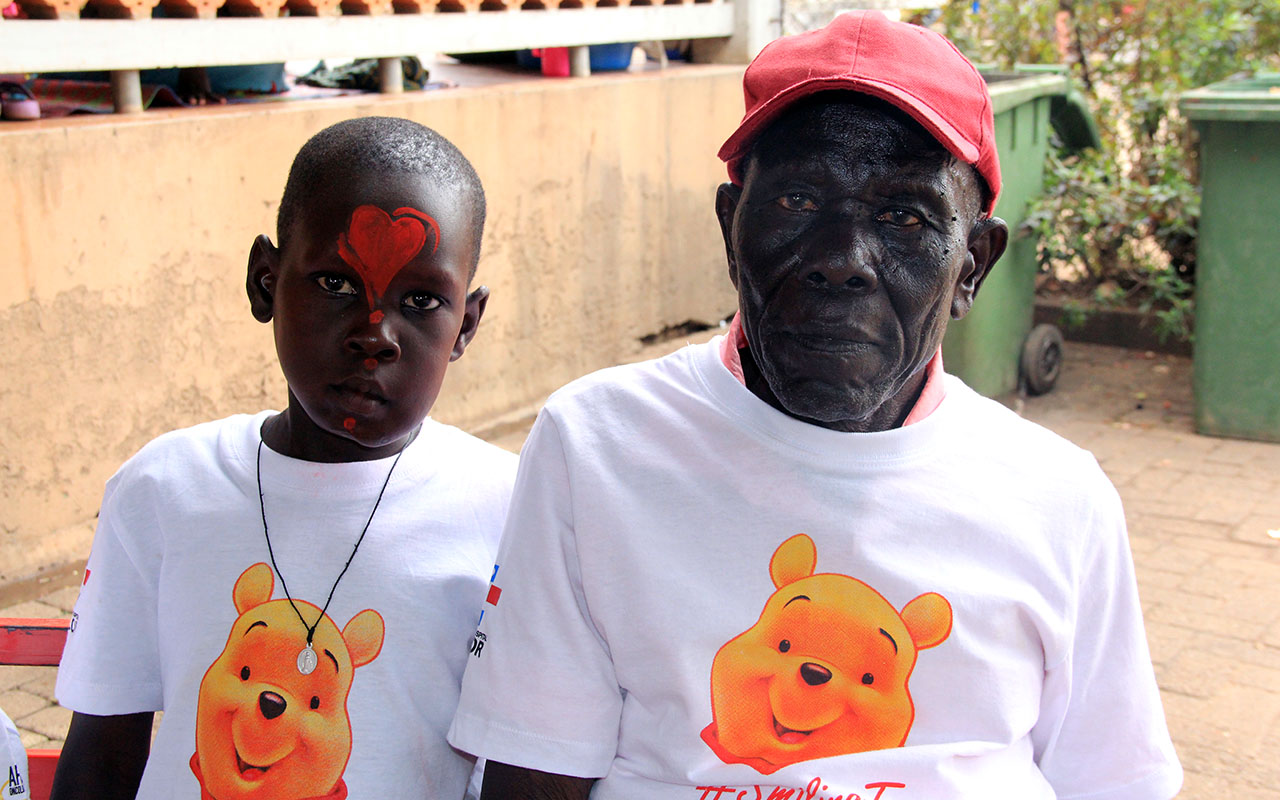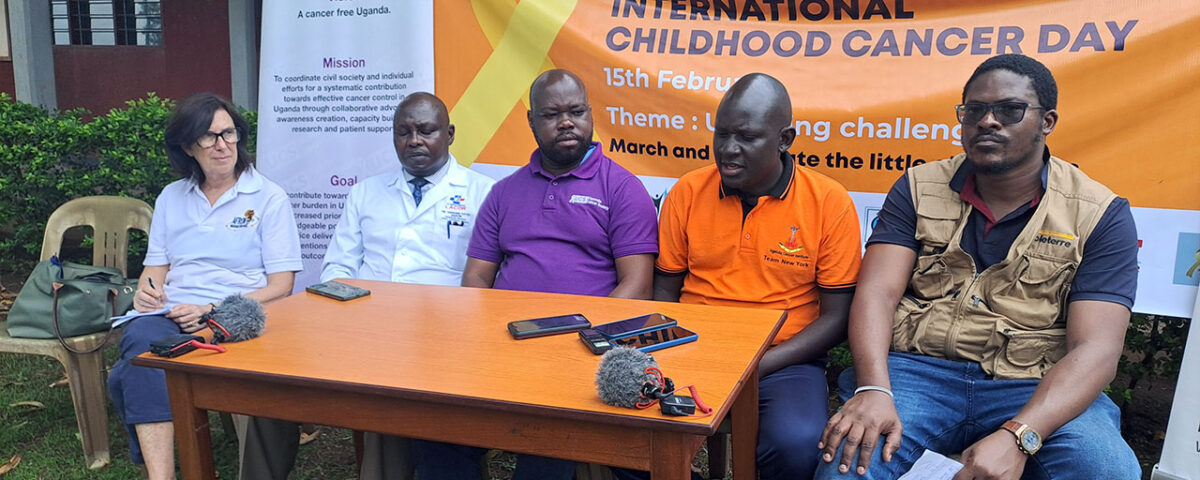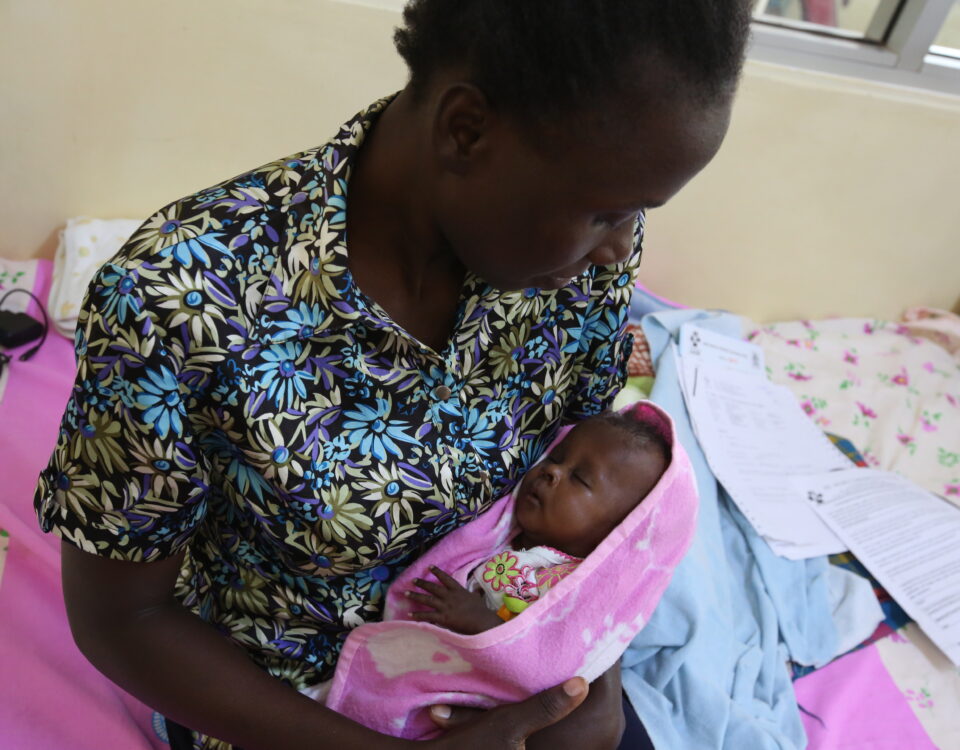Only a third of all cancer cases in Uganda are properly diagnosed and treated according to Dr Geriga Fadhil of the Uganda Cancer Institute. This revelation was made during a press conference organised at Lacor Hospital by civil society organisations working to fight cancer in the region during the commemoration of the International Day of Childhood Cancer held every 15th February.
Adrian Ssali, the Country Director Soleterre Foundation, has attributed the low turn up for treatment to witchcraft, myth and tradition which presents a huge setback in early detection and treatment of cancer in children.
Cancers in children can be difficult to recognize because their early symptoms are often like those caused by other common illnesses or injury such as fever, swellings and can be missed by health workers during diagnosis.
Cancers in children are different because they are not lifestyle related, progress faster and respond better to treatment. They also have a high potential of cure if treated properly compared to adults. More than 80% of children with cancer now survive 5 years or more in the developed countries.
However, in Uganda, only 50% survive beyond one year and 40% live beyond 5 years. “The target is to improve the survival rate to 60%,” says Dr Geriga Fadhil.
Children might do better with cancer treatments than adults because they usually do not have other health problems that can get worse with the cancer treatment. But this is only possible when they’re diagnosed early enough.
Children born in limited resource settings are at a disadvantage because of the myths surrounding the disease. Most of the parents end up going to traditional healers or witchdoctors in search for a cure.
“Families are still seeking the help of traditional healers who have a huge knowledge gap when it comes to cancer,” says Adrian Ssali the Country Director, Soleterre Foundation.
Most of these families only turn to health facilities as a last resort, by which time it might be too late. 12-year-old Aikobua Emmanuel nearly lost his life as a witch doctor charged a very high fee his family could not meet.
When doctors Kiryandongo told his father that the boy had cancer and needed to be referred to a better facility for treatment, his father opted to go back home to Arua and look for a witchdoctor who told them an evil spirit is after the family and the boy needed cleansing.
He then demanded 750,000shs, one goat, a sheep and a black chicken. Because they couldn’t afford to pay, the boy stayed at home for two weeks, but his condition worsened. When they finally took him to a nearby health facility, the medics recognised that it could be cancer and promptly referred them to Lacor.

Emmanuel has successfully completed his treated at Lacor. He’ll be followed for 5yrs
Lacor Hospital has been home to children suffering from cancer right from the 1950s when it was founded, treating mostly Burkitt’s lymphoma, the commonest form of cancer among children in the region alongside nephroblastoma. In women, the commonest form of cancer has been cancers of the cervix and breast.
“We have a very sad story for the male patients. Young men are dying a lot from hepatocellular carcinoma and the older ones are dying of prostate cancer,” says Dr. Martin Ogwang, the Institutional Director, Lacor Hospital.
With the support of Soleterre Foundation, the hospital managed 306 cases of childhood cancer in 2023 with a survival rate of 40-70% depending on the form and severity of the cancer. The hospital receives more than 170 new cases annually.
Soleterre Foundation is an Italian NGO that works for the acknowledgement and application of the right to health in its wider meaning. Since 2018, the Foundation has been mobilising stakeholders and drumming support for childhood cancer treatment in the country.
Soleterre has also established a children’s home at Lacor Hospital that provides shelter, food, and other basic requirements as they wait for treatment. The Foundation also provides financial assistance the families.


